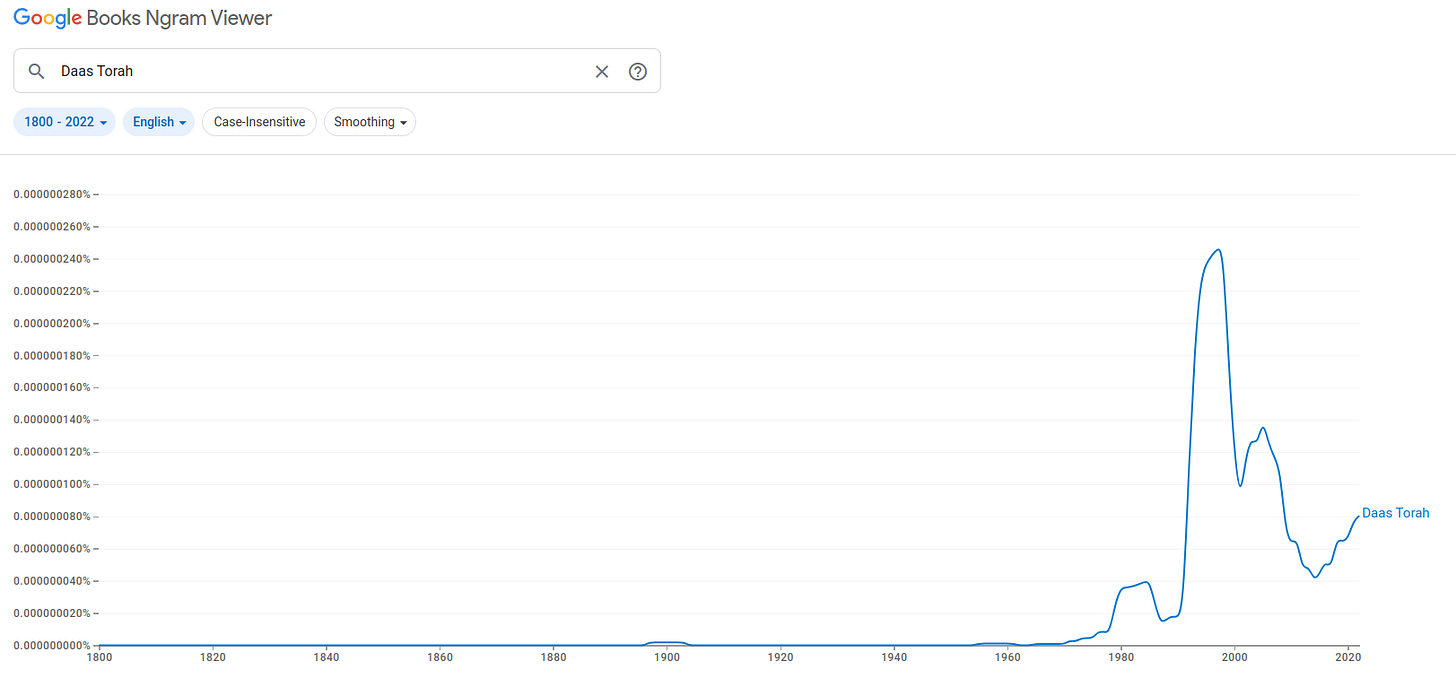My youngest son came home from yeshiva the other day and used the term “daas Torah”. It took me a few moments to register his words. “Daas Torah?” I hadn’t heard that expression for years.
Of course, like anyone else my age, I vaguely remember sharp debates in the Orthodox world over the meaning and implications of daas Torah:
Are Torah scholars, by definition, imbued with definitive understanding of even scientific and worldly matters?
Is the principle of daas Torah based on sources in Chazal or rishonim or of a more recent vintage?
Is the daas Torah wisdom a natural product of the rigorous intellectual training required for achieving Torah greatness or is it a miraculous Divine gift?
But all that was decades ago. I don’t recall hearing about any resolution to the many arguments. To me, looking back from 2025, it seems as though people just moved on to other entertaining topics. For full disclosure, the daas Torah concept was probably bouncing around the back of my head while I was writing this post about how Shlomo Hamelech lacked the knowledge of how to complete all the work of the mikdash. But I didn’t use that specific phrase and I don’t remember it coming up in subsequent discussions.
Perhaps, however, I’m assuming too much and these topics are still hotly-debated. Well these days we have tools to figure out that kind of thing. You can see from the Google Trends chart below that global Google searches for the term “daas torah” peaked in 2014 or so and haven’t been notable since around 2015:
Ok. That’s Google searches. But can we see how the phrase has been used in published books over time? Well, thanks to the Google Books Ngram Viewer we certainly can. Ngram measures the number of times a phrase has appeared in printed books over a given stretch of time (or, technically, the phrase’s density).
This graph represents the English-language usage of “Daas Torah” in books published since 1800. It may be hard to see, but the highest density occurred around the year 2000, and by 2008 or so, it had tapered off.
There is an unmistakable rise in hits since about 2018. Fortunately, the tool allows us to click through to identify - and in many cases actually read - the books in question. When I followed those links I discovered that they seem to mostly represent academic studies of the Orthodox world rather than in new books by Orthodox authors. The one exception I found was a self-published book of parasha derashos by a chassidic author.
These patterns are also largely true of a Hebrew search for דעת תורה:
That peak around 1960 seems largely due to halacha seforim by the Satmar Rav (or at least someone named Joel Teitelbaum) and R’ Shalom Shwadron (the grandson rather than the grandfather?).
So is it reasonable for me to assume that the world moved on from that Great Debate, or am I missing something?







Shot up in the late '50s surely due to RAK
Hey, don't forget about my blog! That has got to have upped it a bit.